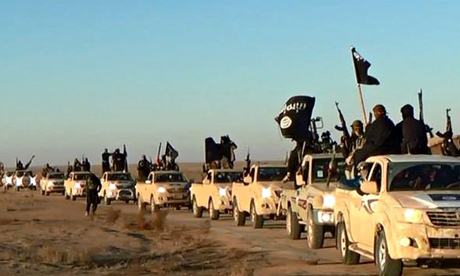Seizure of 160 computer flash sticks in Iraq revealed the inside story of the ISIL, the band of militants that came from nowhere with nothing to having assets of $2bn, The Guardian said.
Seizure of 160 computer flash sticks in Iraq revealed the inside story of the ISIL, the band of militants that came from nowhere with nothing to having assets of $2bn, The Guardian said.
In a report published late on Sunday, the Guardian said that Iraqi forces seized more than 160 computer flash sticks which contained the most detailed information yet known about the terror group.
The sticks included names and noms de guerre of all foreign fighters, senior leaders and their code words, initials of sources inside ministries and full accounts of the group's finances, according to the report.
"We were all amazed and so were the Americans," the daily quoted a senior intelligence official as saying.
"None of us had known most of this information."
"By the end of the week, we soon realized that we had to do some accounting for them," said the official flippantly. "Before Mosul, their total cash and assets were $875m [£515m]. Afterwards, with the money they robbed from banks and the value of the military supplies they looted, they could add another $1.5bn to that."
The report added that the group's leaders had been meticulously chosen.
Many of those who reported to the top tier – all battle-hardened veterans of the militancy against US forces nearly a decade ago – did not know the names of their colleagues.
The strategic acumen of ISIL was ‘impressive’ – so too its attention to detail. "They had itemized everything," the source said. "Down to the smallest detail."
They had taken $36m from al-Nabuk alone [an area in the Qalamoun mountains west of Damascus]. The antiquities there are up to 8,000 years old," the intelligence official said.
"Before this, the western officials had been asking us where they had gotten some of their money from, $50,000 here, or $20,000 there. It was peanuts. Now they know and we know. They had done this all themselves. There was no state actor at all behind them, which we had long known. They don't need one."